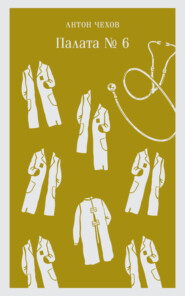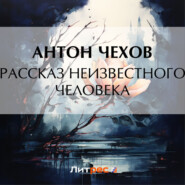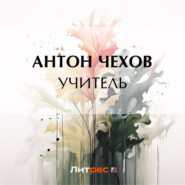По всем вопросам обращайтесь на: info@litportal.ru
(©) 2003-2024.
✖
Plays by Anton Chekhov, Second Series
Настройки чтения
Размер шрифта
Высота строк
Поля
SOLENI. [In a feeble voice] There, there… The Baron will go without his dinner if you only let him talk philosophy.
TUZENBACH. Vassili Vassilevitch, kindly leave me alone. [Changes his chair] You’re very dull, you know.
SOLENI. [Feebly] There, there, there.
TUZENBACH. [To VERSHININ] The sufferings we see to-day – there are so many of them! – still indicate a certain moral improvement in society.
VERSHININ. Yes, yes, of course.
CHEBUTIKIN. You said just now, Baron, that they may call our life noble; but we are very petty… [Stands up] See how little I am. [Violin played behind.]
MASHA. That’s Andrey playing – our brother.
IRINA. He’s the learned member of the family. I expect he will be a professor some day. Father was a soldier, but his son chose an academic career for himself.
MASHA. That was father’s wish.
OLGA. We ragged him to-day. We think he’s a little in love.
IRINA. To a local lady. She will probably come here to-day.
MASHA. You should see the way she dresses! Quite prettily, quite fashionably too, but so badly! Some queer bright yellow skirt with a wretched little fringe and a red bodice. And such a complexion! Andrey isn’t in love. After all he has taste, he’s simply making fun of us. I heard yesterday that she was going to marry Protopopov, the chairman of the Local Council. That would do her nicely… [At the side door] Andrey, come here! Just for a minute, dear! [Enter ANDREY.]
OLGA. My brother, Andrey Sergeyevitch.
VERSHININ. My name is Vershinin.
ANDREY. Mine is Prosorov. [Wipes his perspiring hands] You’ve come to take charge of the battery?
OLGA. Just think, Alexander Ignateyevitch comes from Moscow.
ANDREY. That’s all right. Now my little sisters won’t give you any rest.
VERSHININ. I’ve already managed to bore your sisters.
IRINA. Just look what a nice little photograph frame Andrey gave me to-day. [Shows it] He made it himself.
VERSHININ. [Looks at the frame and does not know what to say] Yes… It’s a thing that…
IRINA. And he made that frame there, on the piano as well. [Andrey waves his hand and walks away.]
OLGA. He’s got a degree, and plays the violin, and cuts all sorts of things out of wood, and is really a domestic Admirable Crichton. Don’t go away, Andrey! He’s got into a habit of always going away. Come here!
[MASHA and IRINA take his arms and laughingly lead him back.]
MASHA. Come on, come on!
ANDREY. Please leave me alone.
MASHA. You are funny. Alexander Ignateyevitch used to be called the lovelorn Major, but he never minded.
VERSHININ. Not the least.
MASHA. I’d like to call you the lovelorn fiddler!
IRINA. Or the lovelorn professor!
OLGA. He’s in love! little Andrey is in love!
IRINA. [Applauds] Bravo, Bravo! Encore! Little Andrey is in love.
CHEBUTIKIN. [Goes up behind ANDREY and takes him round the waist with both arms] Nature only brought us into the world that we should love! [Roars with laughter, then sits down and reads a newspaper which he takes out of his pocket.]
ANDREY. That’s enough, quite enough… [Wipes his face] I couldn’t sleep all night and now I can’t quite find my feet, so to speak. I read until four o’clock, then tried to sleep, but nothing happened. I thought about one thing and another, and then it dawned and the sun crawled into my bedroom. This summer, while I’m here, I want to translate a book from the English…
VERSHININ. Do you read English?
ANDREY. Yes father, rest his soul, educated us almost violently. It may seem funny and silly, but it’s nevertheless true, that after his death I began to fill out and get rounder, as if my body had had some great pressure taken off it. Thanks to father, my sisters and I know French, German, and English, and Irina knows Italian as well. But we paid dearly for it all!
MASHA. A knowledge of three languages is an unnecessary luxury in this town. It isn’t even a luxury but a sort of useless extra, like a sixth finger. We know a lot too much.
VERSHININ. Well, I say! [Laughs] You know a lot too much! I don’t think there can really be a town so dull and stupid as to have no place for a clever, cultured person. Let us suppose even that among the hundred thousand inhabitants of this backward and uneducated town, there are only three persons like yourself. It stands to reason that you won’t be able to conquer that dark mob around you; little by little as you grow older you will be bound to give way and lose yourselves in this crowd of a hundred thousand human beings; their life will suck you up in itself, but still, you won’t disappear having influenced nobody; later on, others like you will come, perhaps six of them, then twelve, and so on, until at last your sort will be in the majority. In two or three hundred years’ time life on this earth will be unimaginably beautiful and wonderful. Mankind needs such a life, and if it is not ours to-day then we must look ahead for it, wait, think, prepare for it. We must see and know more than our fathers and grandfathers saw and knew. [Laughs] And you complain that you know too much.
MASHA. [Takes off her hat] I’ll stay to lunch.
IRINA. [Sighs] Yes, all that ought to be written down.
[ANDREY has gone out quietly.]
TUZENBACH. You say that many years later on, life on this earth will be beautiful and wonderful. That’s true. But to share in it now, even though at a distance, we must prepare by work…
VERSHININ. [Gets up] Yes. What a lot of flowers you have. [Looks round] It’s a beautiful flat. I envy you! I’ve spent my whole life in rooms with two chairs, one sofa, and fires which always smoke. I’ve never had flowers like these in my life… [Rubs his hands] Well, well!
TUZENBACH. Yes, we must work. You are probably thinking to yourself: the German lets himself go. But I assure you I’m a Russian, I can’t even speak German. My father belonged to the Orthodox Church… [Pause.]
VERSHININ. [Walks about the stage] I often wonder: suppose we could begin life over again, knowing what we were doing? Suppose we could use one life, already ended, as a sort of rough draft for another? I think that every one of us would try, more than anything else, not to repeat himself, at the very least he would rearrange his manner of life, he would make sure of rooms like these, with flowers and light… I have a wife and two daughters, my wife’s health is delicate and so on and so on, and if I had to begin life all over again I would not marry… No, no!
[Enter KULIGIN in a regulation jacket.]
KULIGIN. [Going up to IRINA] Dear sister, allow me to congratulate you on the day sacred to your good angel and to wish you, sincerely and from the bottom of my heart, good health and all that one can wish for a girl of your years. And then let me offer you this book as a present. [Gives it to her] It is the history of our High School during the last fifty years, written by myself. The book is worthless, and written because I had nothing to do, but read it all the same. Good day, gentlemen! [To VERSHININ] My name is Kuligin, I am a master of the local High School. [Note: He adds that he is a Nadvorny Sovetnik (almost the same as a German Hofrat), an undistinguished civilian title with no English equivalent.] [To IRINA] In this book you will find a list of all those who have taken the full course at our High School during these fifty years. Feci quod potui, faciant meliora potentes. [Kisses MASHA.]
IRINA. But you gave me one of these at Easter.
KULIGIN. [Laughs] I couldn’t have, surely! You’d better give it back to me in that case, or else give it to the Colonel. Take it, Colonel. You’ll read it some day when you’re bored.
VERSHININ. Thank you. [Prepares to go] I am extremely happy to have made the acquaintance of…
OLGA. Must you go? No, not yet?
TUZENBACH. Vassili Vassilevitch, kindly leave me alone. [Changes his chair] You’re very dull, you know.
SOLENI. [Feebly] There, there, there.
TUZENBACH. [To VERSHININ] The sufferings we see to-day – there are so many of them! – still indicate a certain moral improvement in society.
VERSHININ. Yes, yes, of course.
CHEBUTIKIN. You said just now, Baron, that they may call our life noble; but we are very petty… [Stands up] See how little I am. [Violin played behind.]
MASHA. That’s Andrey playing – our brother.
IRINA. He’s the learned member of the family. I expect he will be a professor some day. Father was a soldier, but his son chose an academic career for himself.
MASHA. That was father’s wish.
OLGA. We ragged him to-day. We think he’s a little in love.
IRINA. To a local lady. She will probably come here to-day.
MASHA. You should see the way she dresses! Quite prettily, quite fashionably too, but so badly! Some queer bright yellow skirt with a wretched little fringe and a red bodice. And such a complexion! Andrey isn’t in love. After all he has taste, he’s simply making fun of us. I heard yesterday that she was going to marry Protopopov, the chairman of the Local Council. That would do her nicely… [At the side door] Andrey, come here! Just for a minute, dear! [Enter ANDREY.]
OLGA. My brother, Andrey Sergeyevitch.
VERSHININ. My name is Vershinin.
ANDREY. Mine is Prosorov. [Wipes his perspiring hands] You’ve come to take charge of the battery?
OLGA. Just think, Alexander Ignateyevitch comes from Moscow.
ANDREY. That’s all right. Now my little sisters won’t give you any rest.
VERSHININ. I’ve already managed to bore your sisters.
IRINA. Just look what a nice little photograph frame Andrey gave me to-day. [Shows it] He made it himself.
VERSHININ. [Looks at the frame and does not know what to say] Yes… It’s a thing that…
IRINA. And he made that frame there, on the piano as well. [Andrey waves his hand and walks away.]
OLGA. He’s got a degree, and plays the violin, and cuts all sorts of things out of wood, and is really a domestic Admirable Crichton. Don’t go away, Andrey! He’s got into a habit of always going away. Come here!
[MASHA and IRINA take his arms and laughingly lead him back.]
MASHA. Come on, come on!
ANDREY. Please leave me alone.
MASHA. You are funny. Alexander Ignateyevitch used to be called the lovelorn Major, but he never minded.
VERSHININ. Not the least.
MASHA. I’d like to call you the lovelorn fiddler!
IRINA. Or the lovelorn professor!
OLGA. He’s in love! little Andrey is in love!
IRINA. [Applauds] Bravo, Bravo! Encore! Little Andrey is in love.
CHEBUTIKIN. [Goes up behind ANDREY and takes him round the waist with both arms] Nature only brought us into the world that we should love! [Roars with laughter, then sits down and reads a newspaper which he takes out of his pocket.]
ANDREY. That’s enough, quite enough… [Wipes his face] I couldn’t sleep all night and now I can’t quite find my feet, so to speak. I read until four o’clock, then tried to sleep, but nothing happened. I thought about one thing and another, and then it dawned and the sun crawled into my bedroom. This summer, while I’m here, I want to translate a book from the English…
VERSHININ. Do you read English?
ANDREY. Yes father, rest his soul, educated us almost violently. It may seem funny and silly, but it’s nevertheless true, that after his death I began to fill out and get rounder, as if my body had had some great pressure taken off it. Thanks to father, my sisters and I know French, German, and English, and Irina knows Italian as well. But we paid dearly for it all!
MASHA. A knowledge of three languages is an unnecessary luxury in this town. It isn’t even a luxury but a sort of useless extra, like a sixth finger. We know a lot too much.
VERSHININ. Well, I say! [Laughs] You know a lot too much! I don’t think there can really be a town so dull and stupid as to have no place for a clever, cultured person. Let us suppose even that among the hundred thousand inhabitants of this backward and uneducated town, there are only three persons like yourself. It stands to reason that you won’t be able to conquer that dark mob around you; little by little as you grow older you will be bound to give way and lose yourselves in this crowd of a hundred thousand human beings; their life will suck you up in itself, but still, you won’t disappear having influenced nobody; later on, others like you will come, perhaps six of them, then twelve, and so on, until at last your sort will be in the majority. In two or three hundred years’ time life on this earth will be unimaginably beautiful and wonderful. Mankind needs such a life, and if it is not ours to-day then we must look ahead for it, wait, think, prepare for it. We must see and know more than our fathers and grandfathers saw and knew. [Laughs] And you complain that you know too much.
MASHA. [Takes off her hat] I’ll stay to lunch.
IRINA. [Sighs] Yes, all that ought to be written down.
[ANDREY has gone out quietly.]
TUZENBACH. You say that many years later on, life on this earth will be beautiful and wonderful. That’s true. But to share in it now, even though at a distance, we must prepare by work…
VERSHININ. [Gets up] Yes. What a lot of flowers you have. [Looks round] It’s a beautiful flat. I envy you! I’ve spent my whole life in rooms with two chairs, one sofa, and fires which always smoke. I’ve never had flowers like these in my life… [Rubs his hands] Well, well!
TUZENBACH. Yes, we must work. You are probably thinking to yourself: the German lets himself go. But I assure you I’m a Russian, I can’t even speak German. My father belonged to the Orthodox Church… [Pause.]
VERSHININ. [Walks about the stage] I often wonder: suppose we could begin life over again, knowing what we were doing? Suppose we could use one life, already ended, as a sort of rough draft for another? I think that every one of us would try, more than anything else, not to repeat himself, at the very least he would rearrange his manner of life, he would make sure of rooms like these, with flowers and light… I have a wife and two daughters, my wife’s health is delicate and so on and so on, and if I had to begin life all over again I would not marry… No, no!
[Enter KULIGIN in a regulation jacket.]
KULIGIN. [Going up to IRINA] Dear sister, allow me to congratulate you on the day sacred to your good angel and to wish you, sincerely and from the bottom of my heart, good health and all that one can wish for a girl of your years. And then let me offer you this book as a present. [Gives it to her] It is the history of our High School during the last fifty years, written by myself. The book is worthless, and written because I had nothing to do, but read it all the same. Good day, gentlemen! [To VERSHININ] My name is Kuligin, I am a master of the local High School. [Note: He adds that he is a Nadvorny Sovetnik (almost the same as a German Hofrat), an undistinguished civilian title with no English equivalent.] [To IRINA] In this book you will find a list of all those who have taken the full course at our High School during these fifty years. Feci quod potui, faciant meliora potentes. [Kisses MASHA.]
IRINA. But you gave me one of these at Easter.
KULIGIN. [Laughs] I couldn’t have, surely! You’d better give it back to me in that case, or else give it to the Colonel. Take it, Colonel. You’ll read it some day when you’re bored.
VERSHININ. Thank you. [Prepares to go] I am extremely happy to have made the acquaintance of…
OLGA. Must you go? No, not yet?

















